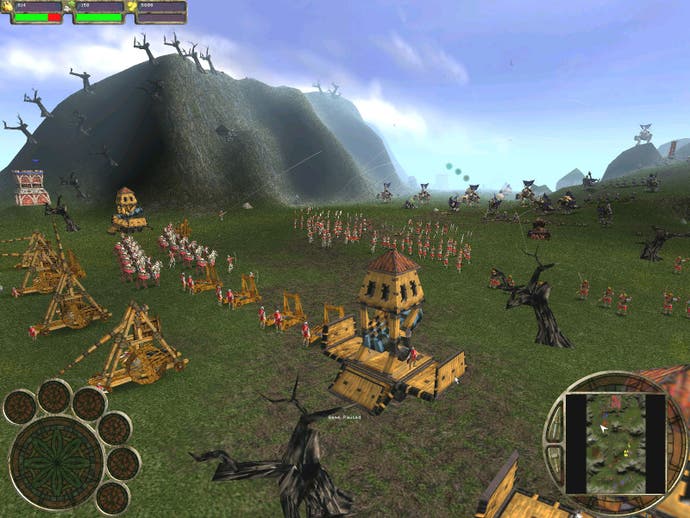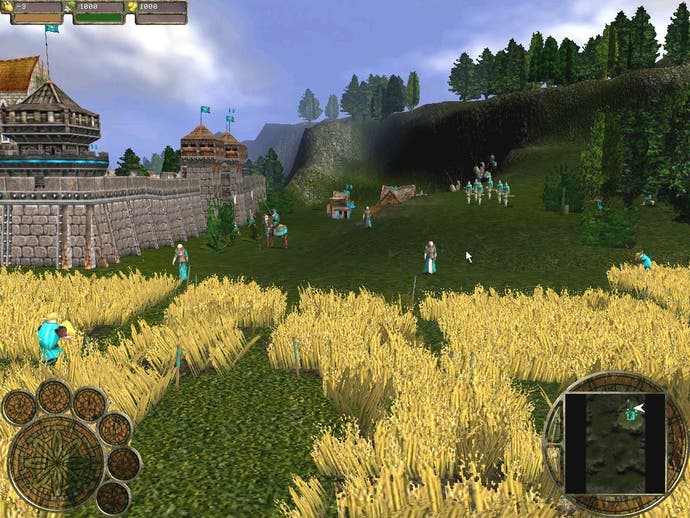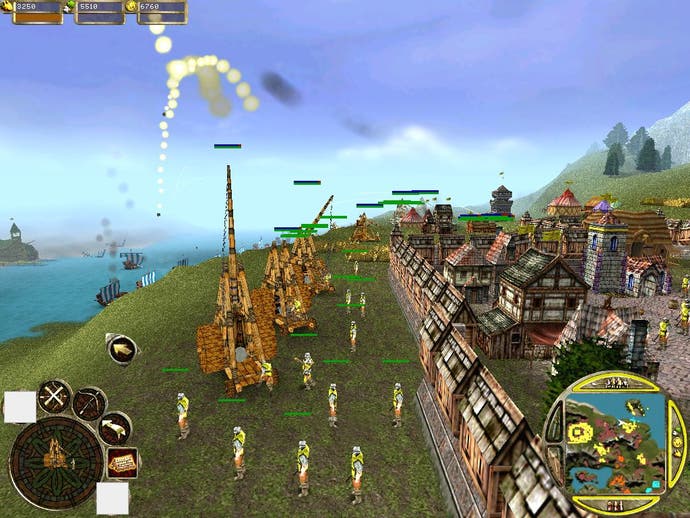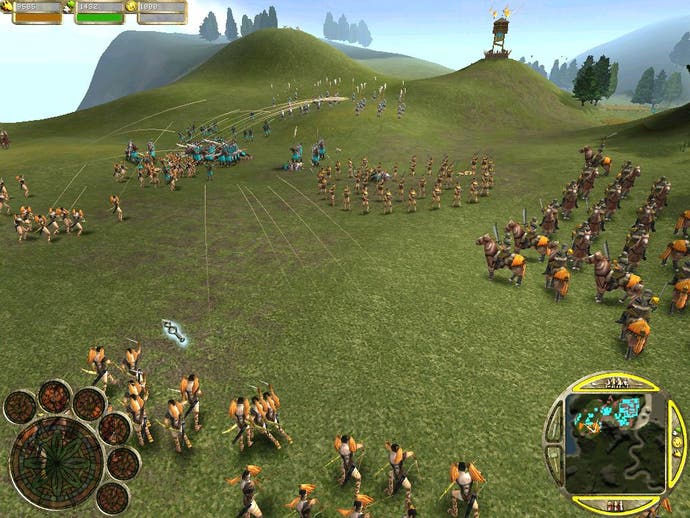Black Cactus - Part Two
Interview - the second part of our interview with Warrior Kings developer Black Cactus
When we first saw Warrior Kings in action at ECTS 2000 there wasn't much in the way of actual gameplay on offer, but since then developers Black Cactus have been working hard to put some gameplay flesh on the bare bones. At this year's show the game looked to be fully playable although, as we discovered last week in The Man Who Would Be King, publisher Microids have recently given Black Cactus another three months to polish and beta test the game.

Three Kings
Testing and play balancing is no doubt being made more complex by the game's three "alignments" - Celestials, Pagans and Renaissance technocrats. Instead of forcing players to pick a faction from the menu when they start the game, Warrior Kings has a more flexible system where your actions determine which units you gain access to and how you progress through the campaign. "The player will build certain structures that open up and close down paths in the tech tree; for example, a church will open up the Celestial side and close down some of the Pagan side. In the single player game there are also several decisions the player makes that affect the story path he follows. You can react differently to challenges you come across, changing the story and your race, making each play through a unique experience. It is really up to the player how their race will develop along the paths." "There are three main alignments, but also in-between paths, so it's possible to share certain elements of different alignments. There are cut off points so once you select you can not go back again, but that is there for positive gameplay, to keep the game moving forward. We think this approach gives the player a huge amount of extra strategy to play with during the game, and players will really have to keep an eye on how their opponents are developing."

Are You Experienced?
It's not just your technology and alignment that develop during the course of the game either. "Units gain experience though combat, and we hope that this will bring an additional edge to the game - will I sacrifice my elite units, or should I use cannon fodder?" Of course, this isn't the first time that somebody has implemented experience for units in a real-time strategy game, but it could prove more important in Warrior Kings than other games because of the scale of the battles. "Our maps are very very big, many times larger than in any other real-time strategy game you have seen. These maps are divided up through the use of missions, alliances, quests in search of technology, magic or new unit types. Many traditional 'upgrades' are made available through the narrative as quests or tasks, which is a refreshing change from your average RTS. You keep all your units throughout these large maps, and you're going to need them." "Now between these maps it's a different matter; you keep key units, like the hero Artos, but the idea of each new map is to offer a new set of challenges rather than just more of the same. Most levels start with very few units, around twenty to forty. Some will require you to create an economy, some will have fully developed economies and some will have you sending raiding parties to your opponent's carts and villages, stealing food to supply your army. So to allow you to carry your whole army from one map to another would cause the player all sorts of problems if the make up of his army was not suitable for the tasks at hand, and we feel it would deflate the player if he thought he had to replay the whole of the last level just to get an army of a certain type."

Siege Artillery
Black Cactus "have been sceptical about the reduction, or even removal, of the economic aspect of real-time strategy games", and as such your economy is vital in Warrior Kings. Economic warfare and raiding can be just as important as frontal assaults, which "opens up a whole host of strategic and tactical options" according to the developers. "We hope players will be able to use the terrain and fortifications to get their armies into almost unassailable positions, but that's no good if your opponent is ravaging your farms and starving your army. Resourses gathered at your farms do not enter your global stocks until they are carried to your city. So if your opponent cuts you off from your villages you are in deep trouble as you will not be receiving food and other resources." This also means that sieges play a big role in the game. "In a lot of games if you want to attack an enemy's building you just send any type of unit up to it and it hacks away at the building until it's destroyed. Now, in Warrior Kings when you start to besiege a city the first thing that happens is that the city gates will be closed by your opponent. Our city walls are strong and no amount of tapping at them with a knight on horseback will bring them down, so it's time for the siege weapons. Trebuchets, Manganels, Bombards, Battering Rams, these are all big specialist weapons designed to knock down city walls and major buildings. Now in the meantime, if you have been sneaky, you would have rolled a few Siege Towers up to the walls at the other rend of the city, and would by now have your troops pouring from the siege towers into your opponent's city causing mayhem."

Complexity For Dummies
All of this might sound a little complex, especially when you consider that there can be hundreds of soldiers in a battle. Luckily then Black Cactus are determined to "give the player easier ways to do things", instead of relying on the kind of rapid-fire clicking found in most real-time strategy games. "Most RTS games reward the player by giving them more things to do, more units to control and more buildings to monitor. This is all OK if you have nimble fingers on the keyboard and mouse, but if you're basically not fast enough then you lose. In Warrior Kings, once the player has mastered the basics we try to help them by making it easier to do more complex things. So, instead of getting into a mouse clicking frenzy we allow the player thinking time to develop strategies and tactics." "The formation system is one of those elements. Once you have a group of eight units of the same type you can put them in a formation, and you can have up to 64 men in a single formation. You can now control the formation in the same way you would control a single unit. Formations will route find just like a single unit, and if they come to a narrow pass they will just flow through it. You can also link formations together to form armies, or set formations to follow or protect other formations. So now you can control thousands of units in the same way you would normally control one unit." Exactly how this will work in practice remains to be seen, but with Warrior Kings now due for release in early February we shouldn't have to wait too much longer to find out whether our pick for Game of the Show at ECTS 2001 can live up to its initial promise.
-
Warrior Kings interview - Part One
Warrior Kings preview (ECTS 2000)
Warrior Kings screenshots

